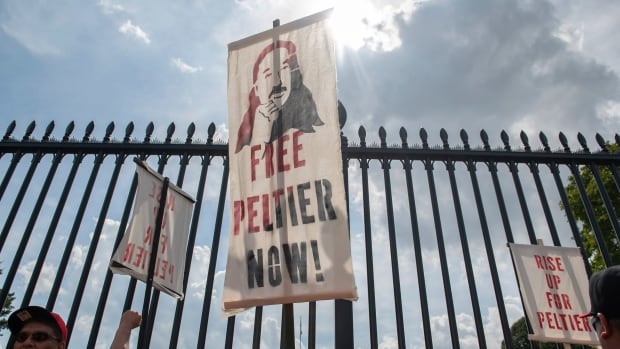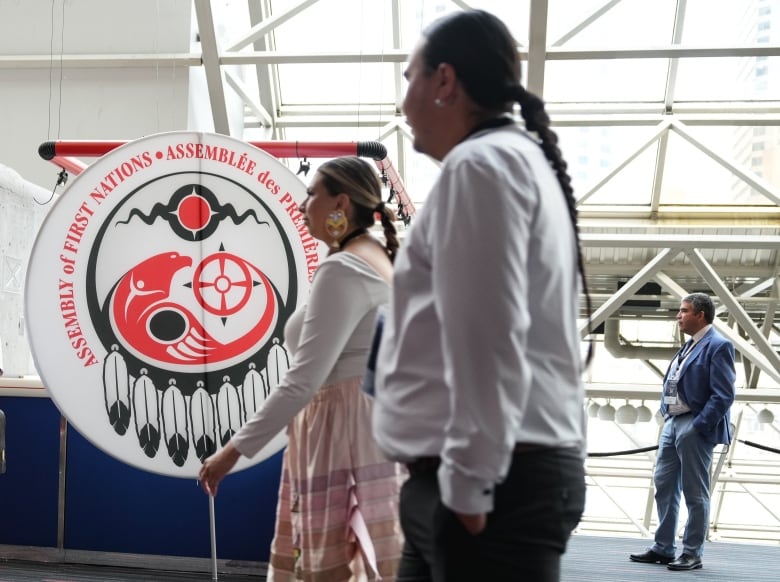
The Assembly of First Nations has reversed 37 years of support for locked-up American Indian Movement (AIM) activist Leonard Peltier, citing Peltier’s alleged role interrogating murdered activist Anna Mae Pictou Aquash.
The assembly, an advocacy organization for more than 600 chiefs, withdrew official backing for the 79-year-old via a resolution adopted at its annual summer convention last week in Montreal.
Peltier, who is serving consecutive life sentences for the 1975 murders of two FBI agents he maintains he didn’t do, was denied parole last month at a penitentiary in Coleman, Fla.
AFN chiefs passed the draft resolution on July 10 with hundreds in attendance, resolving to rescind a 1987 resolution demanding Peltier’s extradition to Canada, and a 1999 resolution urging Canada’s justice minister to formally request the activist be freed.
To supporters, Peltier is a wrongly convicted political prisoner who never got a fair trial — a symbol of resistance and the Red Power movement. But Aquash’s family has questioned his role in events before and after her death.
Family and friends of the Mi’kmaw woman from Nova Scotia have maintained Peltier played a role in interrogating Aquash, whom he suspected of being an informant, the draft resolution says.

Aquash, 30, was killed by a gunshot to the head in December 1975, and her body was found at the bottom of a bluff in southwest South Dakota two months later but U.S. authorities didn’t file an indictment until March 2003.
AIM members Arlo Looking Cloud and John Graham were convicted of the slaying in 2004 and 2010, respectively.
Reconsidering previous political support for those convicted of violence against First Nations women and girls, and those who support them, “is a strong first step to bring truth and healing for survivors and families,” the resolution says.
Family still seeks justice
AIM was a civil rights organization that rose to prominence with militant direct action tactics like the 1969 occupation of Alcatraz and the 1973 armed standoff at Wounded Knee.
The FBI sought to disrupt the movement through covert counterintelligence operations that included recruiting moles and planting spies.
It was in this powder keg environment of paranoia and violence that Aquash was slain. The murder remains shrouded in mystery, particularly around the question of who might have ordered it.
“Still today, her family continues to advocate to the Government of Canada for justice, but are met with jurisdictional disputes,” says the AFN resolution.
Peltier, a member of the Turtle Mountain Chippewa band in North Dakota, was controversially convicted of murdering FBI agents Jack Coler and Ronald Williamson on the Pine Ridge Indian Reservation in South Dakota in 1975. He has spent nearly 50 years behind bars.
The 1999 AFN resolution says Peltier’s extradition from Canada to stand trial in the U.S. was procured through “presentation of fraudulent affidavits, in violation of the treaty of extradition between Canada and the U.S.”
Last October, some 30 members of the U.S. Congress wrote President Joe Biden requesting clemency for Peltier, citing constitutional violations and prosecutorial misconduct during the investigation and trial.
Amnesty International maintains the FBI used threats and harassment to coerce later-recanted witness testimony, and withheld faulty ballistics evidence that would’ve helped Peltier’s defence.
In 2022, a United Nations working group on arbitrary detention concluded Peltier “continues to be detained because he is Native American,” in breach of the International Covenant on Civil and Political Rights.
The FBI, however, staunchly opposes clemency for Peltier. In a June 7 letter to the U.S. Parole Commission, the agency called him a remorseless killer whose legal arguments are unfounded and debunked.
South Dakota’s attorney general, citing evidence introduced in Graham’s trial, maintains Peltier confessed the murders to Aquash and other AIM members in a motorhome in Washington, which “ultimately led to her execution.”
The assembly’s resolution on Peltier was bundled with four others concerning justice and law, and passed as a package with no objections and six abstentions. The package was debated for 30 minutes but no delegate spoke on the Peltier resolution specifically.